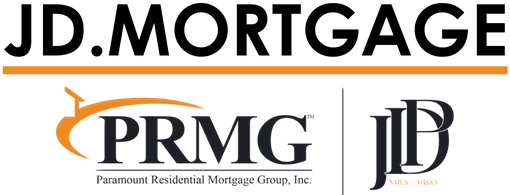VA Loan Benefits and Misconceptions: What Veterans and Realtors Should Know
VA Loan Benefits and Misconceptions
VA home loans give veterans and service members a powerful path to homeownership. This guide explains the benefits, shows how affordability works, and clears up common myths that often cause confusion.
Contact Us (Dec 13th, 2025)What Is a VA Loan?
The VA home loan program is backed by the U.S. Department of Veterans Affairs. It is designed to make buying or refinancing a home easier and more affordable for those who have served our country. Eligible borrowers include veterans, active duty service members, members of the National Guard or Reserves, and certain surviving spouses. With a VA loan, buyers often pay little to no down payment, enjoy flexible credit guidelines, and have protections that other loan programs may not provide. For official details, visit the VA.gov Home Loans page. To learn the basics, also see our VA Mortgage Basics page.
VA Loan Affordability Tools
One of the strongest parts of the VA loan program is the set of tools that make homes more affordable. These tools can reduce monthly payments, lower costs at closing, and even free up money in the family budget.
Seller Concessions
Seller concessions are special contributions from the home seller. They go beyond regular closing costs and can be used in creative ways to help the buyer. For example, concessions can be used to:
Contact Us (Dec 13th, 2025)- Pay off credit cards or car loans to lower monthly expenses
- Buy out a lease if the veteran needs to move before it ends
- Prepay HOA dues
- Cover the first mortgage payment
- Offset entitlement shortfalls instead of requiring a down payment
- Fund temporary buydowns that lower payments during the first years of the loan
By using concessions wisely, veterans can move into a home with less financial stress and more room in their budget.
Concessions vs. Closing Costs
It is important to understand the difference between seller-paid closing costs and concessions. Seller-paid closing costs cover normal fees such as title charges and appraisal. Concessions can be used for extra items that directly improve affordability. Knowing this difference helps real estate agents and veterans structure stronger offers.
Discount Points and Rate Buydowns
Discount points can be paid to reduce the interest rate. In the VA program, these are treated as normal market costs. That means veterans can take advantage of lower rates without worrying about strict caps that sometimes apply in other loan types.
Contact Us (Dec 13th, 2025)Impact on Household Budget
When concessions are used to pay off debts, the veteran’s monthly budget becomes healthier. For example, paying off a car loan with concessions may free up $400 each month. That extra room can make the mortgage payment much more comfortable. To see how this may work in your situation, check out our VA Loans with No Minimum Credit Score resource.
Qualification Flexibility
VA loans are unique because they allow underwriters to look at the full story of the borrower instead of just a few numbers. This flexibility is one of the reasons VA loans have some of the lowest default rates of any mortgage program.
Manual Underwriting
Other loan programs often have strict rules. VA loans are different. They allow manual underwriting, which means the underwriter can use common sense and look at the whole picture. This can help veterans who may not meet the exact rules of other programs still get approved.
Contact Us (Dec 13th, 2025)Debt-to-Income Ratios and Residual Income
Most loan programs focus only on debt-to-income (DTI) ratios. VA loans also use residual income. This is the money left over each month after paying major bills. A veteran with strong residual income may qualify even if their DTI is high. This makes the program more realistic and fair.
No Minimum Credit Score
The VA does not set a minimum credit score. Many lenders create their own rules, but the VA’s official policy is more flexible. A veteran with a challenging credit history may still qualify through compensating factors, strong residual income, and manual underwriting. This makes the VA loan a lifeline for many veterans who have been turned away by other lenders.
Compensating Factors
When a veteran’s situation is outside normal guidelines, compensating factors help show the ability to repay. Common examples include:
Contact Us (Dec 13th, 2025)- Savings or cash reserves after closing
- Stable employment with long history
- Residual income much higher than the minimum required
- Low debt outside of the mortgage
- Large down payment when partial entitlement applies
- Use of Basic Allowance for Housing (BAH)
- Strong record of past housing payments
- Completion of a first-time homebuyer education course such as Fannie Mae’s HomeView
These factors give underwriters confidence to approve a loan even if the file is not perfect.
Program Structure & Features
VA loans have several built-in features that protect veterans and make the program stand out.
- Entitlement and Loan Amounts: Veterans with full entitlement do not have a loan limit. With partial entitlement, second-tier entitlement may apply. Learn more about VA loan limits at VA.gov Loan Limits or see our VA Mortgage Basics.
- Funding Fee: Many veterans are exempt due to disability ratings or active duty status with a Purple Heart. Others can roll the fee into the loan or use concessions to cover it. Full details are available on the VA.gov Loan Types page.
- Protections on Fees: Certain charges cannot be passed to veterans, keeping closing costs in check.
- VA IRRRL: Veterans with existing VA loans can often use a VA IRRRL refinance to lower payments with less paperwork. Read more at the VA.gov IRRRL page.
- Property Flexibility: VA loans can be used for multi-unit homes and certain manufactured homes, as long as occupancy requirements are met.
Common Misconceptions
Even today, many myths about VA loans continue to circulate. Let’s clear them up.
Contact Us (Dec 13th, 2025)- “VA loans always close slower.” This is false. With an experienced lender, VA loans close on the same timeline as other loan types.
- “VA appraisals are too strict.” VA appraisers focus on safety, health, and livability—not cosmetic issues. Basic repairs may be needed, but cosmetic updates are not required. Learn more from the VA.gov Home Loans Hub.
- “Seller concessions are capped at a tiny amount.” This is outdated. The VA allows reasonable concessions when structured correctly, including temporary buydowns.
Frequently Asked Questions
- What can seller concessions be used for on a VA loan?
- Concessions can pay off debt, buy out a lease, prepay HOA dues, cover the first mortgage payment, offset entitlement shortfalls, or fund temporary buydowns.
- Do VA loans take longer to close?
- No. With experienced lenders, VA loans can close as fast as FHA or conventional loans.
- What do VA appraisers look at?
- VA appraisers check for safety, health, and livability. Cosmetic issues do not usually affect the appraisal. See more at the VA.gov site.
- Can I have more than one VA loan?
- Yes, with second-tier entitlement and if occupancy rules are met.
- Is there a VA loan limit?
- With full entitlement, there is no set VA loan limit. With partial entitlement, limits may apply.
- Are temporary buydowns considered concessions?
- Yes, temporary buydowns are treated as concessions in VA transactions.
- Does the VA have a minimum credit score?
- No. The VA does not set a minimum score, though some lenders add overlays.
Making the Most of Your VA Loan Benefit
VA loans are more than just another mortgage program. They combine affordability tools, flexible qualification, and borrower protections. Veterans and service members should take full advantage of these benefits when buying or refinancing a home.
If you are eligible, start exploring today. Review our VA Mortgage Basics guide, learn about VA IRRRL refinancing, and see how VA loans with no minimum credit score can help. These resources will help you make smart choices and secure long-term housing stability.


Comments open